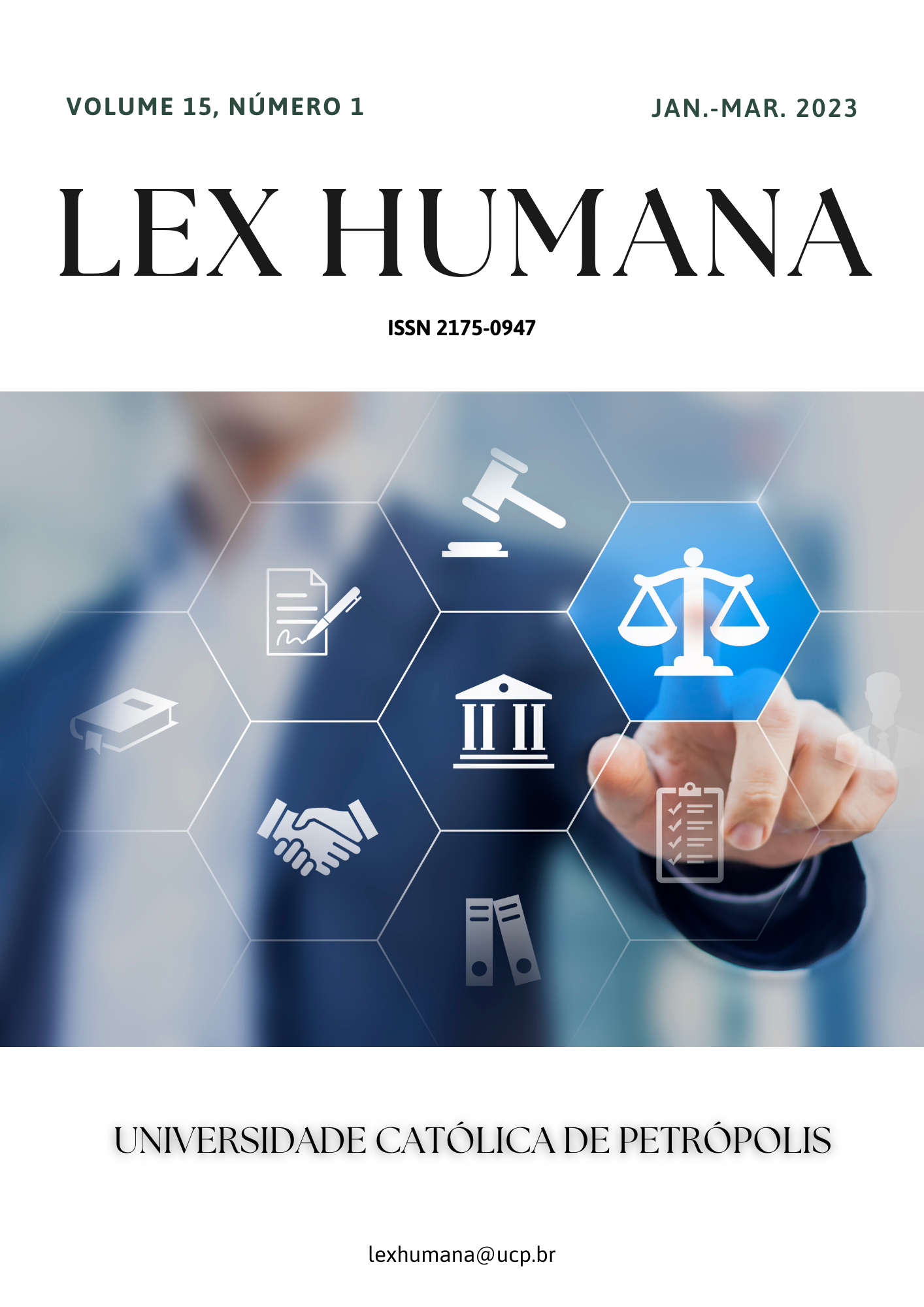Resumo
O artigo tem sido dedicado à transformação do direito e da atividade jurídica causada pela introdução ativa das tecnologias de informação e comunicação na esfera jurídica. As áreas mais importantes da existência do direito, tais como a legislação, a realização legal e a proteção legal, estão cada vez mais digitalizadas. O objetivo principal do estudo é considerar a transformação do direito e da atividade jurídica no contexto do desenvolvimento das tecnologias digitais. A base metodológica foi os métodos formal-legal, concreto-sociológico, e comparativo-legal. Além disso, foram utilizados métodos lógicos e históricos, sistema-estrutural, análise, síntese, indução, dedução. O artigo reflete não apenas os aspectos positivos da introdução de novas tecnologias, principalmente digitais, mas também identifica problemas individuais que são causados por este processo. Além disso, são levantadas questões relativas à própria compreensão da lei, seu papel e significado nas condições da Quarta Revolução Industrial. A lei adquirirá um caráter tecnologizado hoje e no futuro. O objetivo da lei sempre foi o de estabelecer a disciplina social na sociedade. Nas condições da formação de uma sociedade em rede e do Estado, os modelos comportamentais que estão fixados em normas legais adquirem o caráter de algoritmos peculiares à civilização tecnológica. Dois fatores determinarão, acima de tudo, a transformação do direito - econômico e tecnológico. O estudo concluiu que a transformação digital do direito é apenas uma mudança nas formas do direito, ou seja, nas formas de sua objetivação.
Referências
Alpaydin, E. (2014). Introduction to machine learning. 3rd ed. Cambridge: The MIT Press.
Bastick, Z. (2017). Digital limits of government: The failure of E-democracy. In A. Paulin, L. Anthopoulos, & C. Reddick (Eds.), Beyond bureaucracy: Towards sustainable governance informatization (pp. 3-14). Cham: Springer International Publishing.
Dale, R. (2019). Law and word order: NLP in legal tech. Natural Language Engineering, 25(1), 211-217. http://dx.doi.org/10.1017/S1351324918000475
Jackson, M. (2019). Regulating AI. In C. Bertram, A. Aibson, & A. Nugent (Eds.), Closer to the machine: Technical, social, and legal aspects of AI (pp. 121-138). Melbourne: Office of the Victorian Information Commissioner.
Kirillova, E. A. Pavlyuk, A. V., & Mikheyev, A. A. (2019). Online contractual process: Status and technology. International Journal of Recent Technology and Engineering, 8(1), 2234-2240.
Kozurov, D. (2020, January 31). Bolshoi brat khochet znat, skolko u tebya deneg [Big brother wants to know how much money you have]. Komsomolskaya Pravda. https://www.kp.ru/daily/27085/4157562/
Lazarev, V. (2020). Izbrannoe. Iz liricheskoi yuridicheskoi prozy [Favorites. From lyrical legal prose]. Moscow: Federal Chamber of Lawyers of the Russian Federation.
Le Sueur, A. (2016). Robot government: Automated decision-making and its implications for parliament. In A. Horne, & A. Le Sueur (Eds.), Parliament: Legislation and accountability (pp. 183-203). Oxford: Hart Publishing.
Metsker, O. G., Trofimov, E., Petrov, M., & Butakov, N. A. (2019). Russian court decisions data analysis using distributed computing and machine learning to improve lawmaking and law enforcement. Procedia Computer Science, 156, 264-273. http://dx.doi.org/10.1016/j.procs.2019.08.202
ODSC – Open Data Science. (2019, April 29). Using NLP and ML to analyze legislative burdens upon businesses. https://medium.com/@ODSC/using-nlp-and-ml-to-analyze-legislative-burdens-upon-businesses-e5cc106b85b0
Schwab, K. (2018). Tekhnologii chetvertoi promyshlennoi revolyutsii [Technologies of the fourth industrial revolution]. Moscow: Eksmo, 320 p.
Shnurenko, I. (2021). Homo fractus. Chelovek vzlomannyi [Homo fractus. Broken human]. Moscow: Nashe zavtra.
Skinner, C. (2019). Tsifrovoi chelovek. Chetvertaya revolyutsiya v istorii chelovechestva, kotoraya zatronet kazhdogo [Digital person. The fourth revolution in human history that will affect everyone]. Moscow: Mann, Ivanov and Farber, 304 p.
Stolbov, M. I., & Brendeleva, E. A. (Eds.). (2018). Osnovy tsifrovoi ekonomiki [Basics of digital economy]. Moscow: Nauchnaya biblioteka.
Tulikov, A. V. (2017). Informatsionnaya bezopasnost i prava cheloveka v usloviyakh postindustrialnogo razvitiya (teoretiko-pravoi analiz) [Information security and human rights in the conditions of post-industrial development (theoretical and right analysis)]: Abstract of a thesis of candidate of legal sciences. National Research University “Higher School of Economics”, Moscow.
Van Gog, R., & Van Engers, T. M. (2001). Modeling legislation using natural language processing. In 2001 IEEE International Conference on Systems, Man and Cybernetics. e-Systems and e-Man for Cybernetics in Cyberspace (Cat. No.01CH37236) (vol. 1, pp. 561-566). IEEE. http://dx.doi.org/10.1109/ICSMC.2001.969873
Waddington, M. (2020). Rules as a code. Law in Context, 37(1), 179-186. http://dx.doi.org/10.26826/law-in-context.v37i1.134

Este trabalho está licenciado sob uma licença Creative Commons Attribution-NonCommercial-NoDerivatives 4.0 International License.
Copyright (c) 2023 Lex Humana (ISSN 2175-0947)

